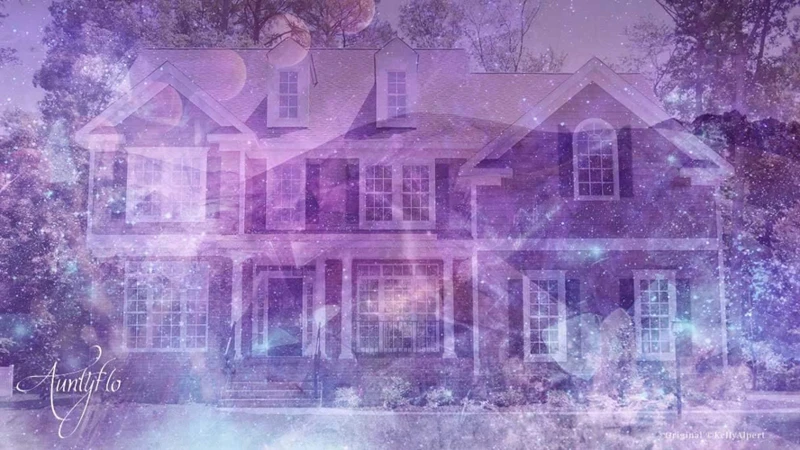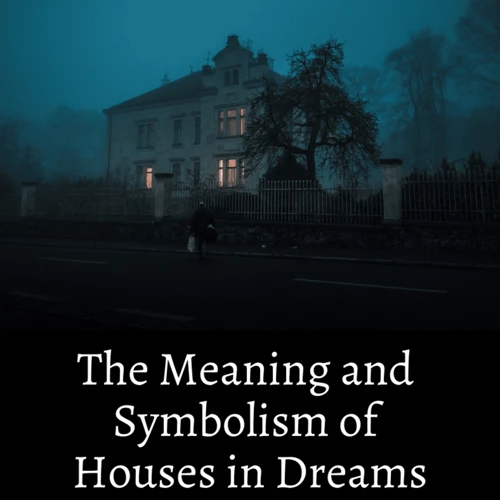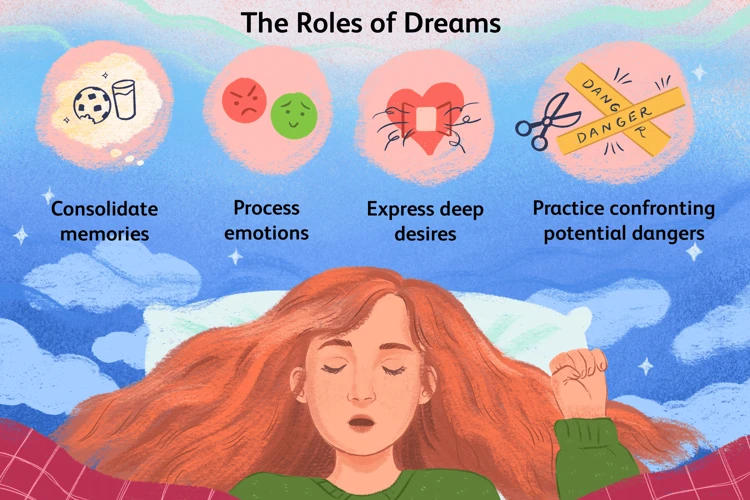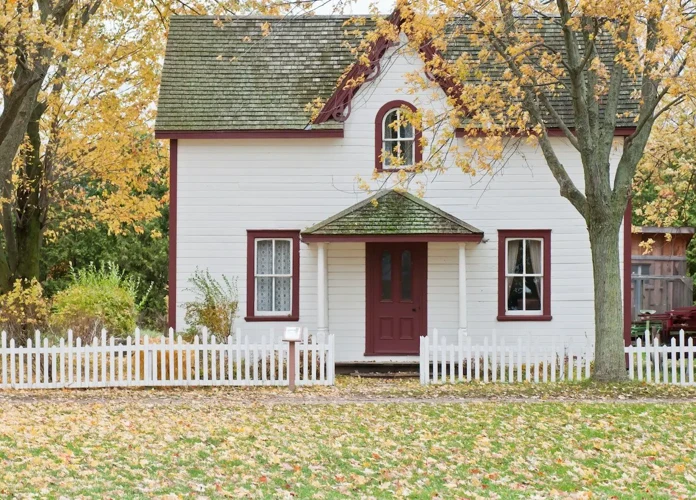Why do our childhood homes hold such a mysterious allure in our dreams? The dream world is a realm where the subconscious mind takes center stage, and our childhood homes often play a starring role. In this article, we will delve into the fascinating realm of dreams associated with childhood homes and explore their interpretation. From dreams about returning to the familiar setting of our early years to nightmares of the haunting past, we will unravel the hidden meanings behind these enigmatic dreams. We will also discuss the symbolism of the childhood home, the emotional connections and nostalgia it represents, the unresolved issues and trauma it may signify, and the growth and self-exploration that can emerge from these dreams. We will explore techniques to analyze childhood home dreams, such as journaling, working with dream therapists, exploring family dynamics, and understanding personal associations. Additionally, we will delve into the role of the subconscious mind, the psychological and cultural factors influencing these dreams, the impact of upbringing on childhood home dreams, the influence of physical spaces, and the potential for psychological healing through dream analysis. Together, let us embark on a journey of self-discovery and unravel the mysteries of our dreams associated with childhood homes.
Why Childhood Homes?

Our dreams are often a reflection of our subconscious mind, and childhood homes hold a special significance in these dreamscapes. The connection we have with our childhood homes runs deep, as these are the places where we experienced our first emotions, formed our earliest memories, and shaped our identity. Dreams about childhood homes can evoke a sense of nostalgia, longing, or even anxiety, as they tap into the emotional reservoirs associated with our early years. Whether it’s a dream of returning to the familiar setting of our childhood home, a nightmare filled with haunting memories, or a dream of renovating the place we once called home, these dreams provide a doorway into our past experiences and emotions. The symbolism of the childhood home in dreams is rich and varied, representing themes such as security, comfort, and familiarity. These dreams can also serve as a reflection of unresolved issues and traumas, as well as a catalyst for growth and self-exploration. Exploring the interpretation of childhood home dreams can help us gain a deeper understanding of ourselves and the influence our past has on our present. So, let us embark on this journey of unraveling the mysteries behind the dreams associated with our childhood homes.
Common Childhood Home Dreams

Childhood home dreams come in various forms, each carrying its own unique symbolism and meaning. Dreams about returning to the childhood home are among the most common. These dreams often evoke a sense of nostalgia and may reflect a desire for security, comfort, or a longing for the past. They can signify a need for emotional support or a craving for a simpler time. On the other hand, nightmares about the childhood home can be unsettling, representing unresolved issues or traumas from the past that still haunt us. These dreams may serve as an invitation to confront and heal from past experiences. Another common childhood home dream is the dream of renovating the childhood home. These dreams can symbolize personal growth, transformation, or a desire to make changes in one’s life. They may represent a need for self-improvement or a longing for a fresh start. The interpretation of these dreams is highly personal, as they are influenced by individual experiences and emotions. Exploring the symbolism and meaning behind these childhood home dreams can provide valuable insights into our subconscious desires and emotional landscape, helping us navigate our present realities. So, let us delve deeper into the rich tapestry of childhood home dreams and unlock the secrets they hold.
Dreams about Returning to the Childhood Home
Dreams about returning to the childhood home are a common occurrence in the realm of dream exploration. These dreams often evoke a sense of nostalgia and a longing for the comfort and familiar surroundings of our early years. When we dream of returning to our childhood homes, it signifies a desire to reconnect with our roots and rekindle the emotions associated with that time in our lives. This dream may be triggered by a longing for a simpler time or a yearning for the security and innocence we felt during our childhood. It can also symbolize a need for emotional support and a desire for a sense of belonging. In some instances, these dreams may serve as a reminder to revisit unresolved issues or significant events from our past that continue to have an impact on our present lives. It’s important to note that these dreams are highly personal and can vary in interpretation based on individual experiences and emotions. They provide an opportunity for introspection and self-reflection, allowing us to gain insights into our current emotional state and the impact our childhood has on our adult lives. Exploring the symbolism and themes within these dreams can help us better understand ourselves and navigate the complexities of our conscious and subconscious minds. If you’re interested in further decoding the meanings behind different dream settings, such as crowded cities or natural landscapes, you can find more information here.
Nightmares about the Childhood Home
Nightmares about the childhood home can be particularly distressing and evoke strong emotional reactions. These dreams often surface when there are unresolved issues or traumas associated with our early years. Childhood home nightmares can manifest in various forms, each carrying its own symbolism and significance. For some, these nightmares may involve a distorted version of their childhood home, with eerie or dark elements that create a sense of unease and fear. The familiar spaces within the dream may become unfamiliar and disorienting, representing a loss of comfort and security. Others may experience nightmares where they find themselves trapped in their childhood home, unable to escape or break free from the past. These dreams can symbolize a feeling of being stuck or constrained by unresolved emotions or traumatic events. It is not uncommon for childhood home nightmares to resurface during times of stress or when there is a need for healing and resolution. Exploring the underlying emotions and themes in these nightmares can provide valuable insights into the areas of our lives that require attention and healing. By addressing the unresolved issues tied to our childhood homes, we can work towards finding a sense of peace and closure within ourselves. For more information on decoding dreams related to specific environments, such as crowded cities or natural landscapes, refer to our article on decoding dreams in crowded cities or our article on unlocking dreams in natural landscapes.
Dreams of Renovating the Childhood Home
Dreams of renovating the childhood home hold a unique symbolism that reflects our inner desire for transformation and growth. These dreams often center around the physical restoration or modification of our childhood homes, representing a metaphorical process of rebuilding and revitalization within ourselves. Renovation dreams can be a manifestation of our subconscious mind’s recognition of the need for change and improvement in our lives.
In these dreams, we may find ourselves engaging in various activities such as painting the walls, rearranging furniture, or even expanding the size of the house. Each action in the dream carries its own symbolic meaning. For example, painting the walls can symbolize the desire for a fresh start or a new perspective. Rearranging furniture may represent a need to reorganize our lives or make adjustments to our current circumstances.
The process of renovating in the dream may reveal insights into our emotional state and personal growth. For instance, if the dream focuses on repairing a damaged roof, it could signify the need to address emotional wounds or mend broken relationships. As we engage in the process of renovating our childhood home, we are symbolically working on ourselves and finding ways to heal, grow, or let go of the past.
It is important to consider the specific details and emotions associated with the dream, as they provide valuable clues for interpretation. For example, if the dream evokes a sense of excitement and anticipation, it may indicate a positive outlook towards personal development and embracing change. On the other hand, if the dream is filled with frustration or obstacles during the renovation process, it might suggest that there are barriers or challenges we need to overcome in our personal lives.
Dreams of renovating the childhood home serve as a powerful reminder of our capacity for self-improvement and transformation. They encourage us to reflect on our current circumstances, identify areas that need attention, and take proactive steps towards personal growth. By exploring the symbolism and emotions associated with these dreams, we can gain valuable insights into our own journeys of self-discovery and development.
Interpreting Childhood Home Dreams

Interpreting childhood home dreams requires delving into the symbolism, emotions, and themes associated with these dreams. The childhood home itself holds significant meaning, representing a foundation of our early experiences and a reflection of our personal history. Symbolism plays a crucial role in understanding these dreams, as the home may represent feelings of security, comfort, or a desire for stability. Emotional connections and nostalgia are also prevalent in childhood home dreams, as they tap into our attachment to the past and the people associated with that time. Childhood home dreams may indicate unresolved issues and trauma that require attention and healing. Exploring these dreams can provide an opportunity for growth and self-exploration, allowing us to gain insights into our identity and uncover hidden aspects of our psyche. Through journaling and reflection, seeking guidance from a dream therapist, examining family dynamics, and understanding our personal associations, we can unravel the multifaceted meanings behind our childhood home dreams and embark on a path of self-discovery and healing.
Symbolism of the Childhood Home
The childhood home holds a multitude of symbolic meanings within our dreams. It represents a foundation, a starting point, and a sense of rootedness in our personal history. In dreams, the childhood home often serves as a metaphor for our emotional and psychological state. It can represent feelings of security, comfort, and belonging. The state of the home in the dream, whether it is well-maintained or in disrepair, can reflect our inner emotional landscape. A well-maintained childhood home may indicate a sense of stability and contentment, while a dilapidated home could signify unresolved issues or emotional turmoil. The different rooms of the childhood home may also hold individual significance. For example, the bedroom may represent our private thoughts and desires, the kitchen may symbolize nurturing and sustenance, and the living room may signify social connections and relationships. Exploring the symbolism of the childhood home in dreams can provide valuable insights into our emotional well-being, the impact of our upbringing, and the themes that continue to influence our lives. By unraveling the hidden messages behind these dreams, we can gain a deeper understanding of ourselves and our journey of personal growth.
Emotional Connections and Nostalgia
Emotional connections and nostalgia play a significant role in dreams associated with childhood homes. Our childhood homes often evoke a deep sense of nostalgia, representing a time of innocence, carefree exploration, and emotional connections with our family and loved ones. When we dream about our childhood homes, these dreams can be filled with vivid emotions and sentimental attachments. The familiar sights, sounds, and smells of our childhood homes can trigger a flood of memories and evoke a sense of comfort and belonging. These dreams may reflect a longing to reconnect with the positive emotions and experiences associated with our early years. They can symbolize a desire for security, unconditional love, and a yearning to revisit a simpler time in our lives. However, it’s important to note that not all childhood home dreams are positive. They can also evoke feelings of sadness, loss, or even pain, particularly if the home represents unresolved issues or traumas from our past. Exploring the emotional connections and nostalgia within childhood home dreams can provide valuable insights into our emotional well-being and can serve as a catalyst for healing and personal growth. By understanding the significance of these nostalgic dreamscapes, we can gain a deeper understanding of ourselves and the impact our childhood has on our present selves.
Unresolved Issues and Trauma
Unresolved issues and trauma from our childhood can manifest in our dreams about our childhood homes. These dreams serve as a powerful conduit for our subconscious mind to process and confront the unresolved emotions and experiences that still impact us. Childhood home dreams that involve unsettling or distressing events may indicate underlying trauma that we have yet to fully address. This could be related to past neglect, abuse, or other forms of emotional or psychological distress. The childhood home serves as a symbolic representation of these unresolved issues, and through our dreams, our mind attempts to bring them to the surface for healing and resolution. These dreams may evoke feelings of fear, sadness, or confusion as we revisit painful memories or revisit familiar settings that hold negative associations. It is important to approach these dreams with compassion and seek support from a therapist or counselor who can help us navigate the emotional terrain of our past. By acknowledging and working through these unresolved issues in our childhood home dreams, we can take significant steps toward healing and personal growth.
Growth and Self-Exploration
Growth and self-exploration are fundamental elements that dreams associated with childhood homes can signify. When we encounter dreams featuring our childhood homes, they can serve as a powerful catalyst for personal growth and self-discovery.
1. Reflecting on Personal Development
Dreaming about our childhood homes can symbolize a desire to reconnect with our roots and reflect on our personal development. It provides an opportunity to revisit the memories and experiences that shaped us. Through these dreams, we may gain insights into how far we have come and the progress we have made in various aspects of our lives.
2. Exploring Identity and Self-Image
Childhood home dreams can also prompt us to explore our identity and self-image. They may raise questions about who we were in the past, who we have become, and who we aspire to be. These dreams can uncover hidden aspects of our personality or shed light on unexplored potential, inspiring us to embrace personal growth and further explore our true selves.
3. Seeking Resolution and Closure
In some instances, dreams about childhood homes may signify a need for resolution and closure. They can be a manifestation of unresolved issues or unhealed wounds from the past. These dreams provide an opportunity to confront and work through these emotional burdens, ultimately fostering personal growth and moving towards emotional well-being.
4. Encouraging Change and Transformation
Dreams of childhood homes may act as a catalyst for change and transformation. They can signify a desire for a fresh start or the need to let go of old patterns and beliefs that no longer serve us. These dreams can inspire us to embark on a journey of self-improvement, guided by the lessons learned from our past experiences and the emotional connections we have with our childhood homes.
By examining dreams associated with childhood homes through the lens of growth and self-exploration, we can uncover valuable insights into our personal development, identity, unresolved issues, and aspirations. These dreams provide an opportunity for introspection, self-reflection, and the pursuit of personal growth and transformation.
Techniques to Analyze Childhood Home Dreams

Analyzing childhood home dreams requires a thoughtful and introspective approach. There are various techniques that can aid in uncovering the deeper meanings behind these dreams. Journaling and reflection serve as an effective starting point, allowing individuals to record and explore their dreams in detail, noting any recurring themes or emotions. Another valuable technique is working with a dream therapist, who can provide guidance and interpretations based on their expertise in dream analysis. Additionally, exploring family dynamics can shed light on the connections between childhood experiences and dream symbolism, as familial relationships can greatly impact our perceptions and emotions. Understanding personal associations with specific symbols or experiences can also be helpful in decoding childhood home dreams. By examining these dreams through a multi-faceted lens, individuals can gain insight into their subconscious mind and develop a deeper understanding of themselves.
Journaling and Reflection
Journaling and reflection are powerful techniques for analyzing and gaining insights from childhood home dreams. Journaling allows us to record and explore our dreams in detail, providing a written record of our experiences. When journaling about childhood home dreams, start by writing down the key elements, emotions, and symbols that stood out to you. Reflect on the significance of these elements and consider any connections to your past experiences or emotions. You can also use reflection exercises to delve deeper into your dream. Consider questions such as: What emotions did the dream evoke? How did the dream relate to your current life or circumstances? Are there any unresolved issues from your childhood that the dream may be bringing to light? What lessons or messages might the dream be trying to convey? Through reflection, you can uncover hidden meanings and gain a better understanding of the personal significance behind your childhood home dreams. Another helpful practice is to create a dream journal dedicated specifically to childhood home dreams. In this journal, you can document recurring dreams, patterns, and any new insights you gain over time. The act of journaling and reflection helps to bring clarity and self-awareness, allowing you to harness the therapeutic potential of your dreams.
Working with a Dream Therapist
Working with a dream therapist can be a valuable approach to analyzing childhood home dreams and gaining deeper insight into their significance. Dream therapists specialize in dream analysis and provide guidance and support in interpreting the symbolism and underlying messages within our dreams. Here are some ways in which a dream therapist can assist in exploring childhood home dreams:
1. Expert interpretation: Dream therapists have the knowledge and expertise to interpret dreams based on psychological theories and symbolism. They can help decipher the hidden meanings and symbols specific to childhood home dreams, offering a fresh perspective and deeper understanding.
2. Facilitated exploration: By engaging in open and guided discussions with a dream therapist, individuals can explore their childhood memories, emotions, and experiences related to their homes. This exploration can uncover subconscious connections and provide a clearer understanding of the dream’s significance.
3. Emotional support: Childhood home dreams can bring up intense emotions and memories. A dream therapist creates a safe and supportive space for individuals to express their feelings, process any unresolved issues, and find healing through understanding and validation.
4. Techniques and exercises: Dream therapists may introduce various techniques and exercises to enhance dream recall, strengthen the dreamer’s connection to their subconscious mind, and explore different angles of the dream. These techniques can include visualization exercises, journaling prompts, or creative activities.
5. Integration into daily life: Apart from interpreting dreams, dream therapists can also help individuals integrate the insights gained from childhood home dreams into their everyday lives. This may involve identifying patterns, making connections to current situations or relationships, and implementing practical strategies for personal growth and healing.
Working with a dream therapist provides an opportunity for personalized and focused exploration of childhood home dreams. Their expertise, guidance, and empathetic support can be instrumental in unraveling the complex layers of meaning within these dreams, leading to self-discovery and a deeper understanding of one’s past experiences and emotions.
Exploring Family Dynamics
Exploring Family Dynamics: Dreams about childhood homes often provide insights into our family dynamics and the relationships that shaped us during our early years. Our families play a profound role in our lives, and their influence extends into our subconscious thoughts and dreams. Dreams about childhood homes can symbolize the dynamics we experienced within our family unit. For example, a dream of a loving and nurturing childhood home may indicate a harmonious family environment, while a dream of conflict or dysfunction within the home may suggest unresolved issues or tensions within the family dynamic. These dreams can reveal patterns of behavior, communication styles, and unresolved emotions that continue to impact our present relationships. By analyzing the interactions and emotions portrayed in our childhood home dreams, we can gain a deeper understanding of the dynamics that shaped us and identify areas where healing and growth may be needed. Exploring family dynamics in relation to childhood home dreams can provide valuable insight into our personal history and foster greater self-awareness. It may also be helpful to consider external factors that influenced family dynamics, such as cultural or societal expectations and norms. By delving into these dreamscapes and unpacking the complexities of family dynamics, we can uncover hidden truths, reconcile past experiences, and pave the way for healthier relationships in the present and future.
Understanding Personal Associations
Understanding personal associations is key to interpreting childhood home dreams. Each individual has unique memories, emotions, and experiences tied to their childhood home, and these personal associations can greatly influence the meaning of the dream. To gain a deeper understanding of these associations, it can be helpful to engage in reflective practices such as journaling or self-reflection exercises. Journaling allows individuals to explore their emotions, memories, and thoughts associated with their childhood home dreams. By writing down details about the dream, including specific objects, people, or events, individuals can uncover hidden connections and patterns. Taking note of the emotions experienced during the dream and upon waking up can also provide valuable insights. Another approach is to create a mind map or a list that visually represents the different elements and associations related to the childhood home. This can include memories, family dynamics, significant events, and personal feelings. By organizing these associations, individuals can start to make connections and uncover the underlying themes and messages within their dreams. It is important to note that personal associations can evolve over time, so revisiting and updating these reflection exercises periodically can provide new insights and perspectives.
The Role of the Subconscious Mind

The subconscious mind plays a crucial role in shaping our dreams, including those associated with childhood homes. It is the deep, hidden part of our psyche that stores memories, emotions, and desires that may not always be accessible in our waking life. Childhood home dreams are often influenced by the subconscious mind’s attempt to process and make sense of these stored experiences.
One way in which the subconscious mind manifests in dreams is through symbolism. The childhood home itself may represent a symbol of safety, comfort, or a longing for the past. It can serve as a metaphor for our inner world, reflecting our emotional state, unresolved conflicts, and even our desires for nurturing and security. For example, dreaming of a dilapidated childhood home may indicate a need for emotional healing or a desire for closure on past experiences.
The subconscious mind also uses dreams as a way to communicate with our conscious selves. Through childhood home dreams, it may bring attention to unresolved issues or traumas that need healing. These dreams can act as a gentle nudge from our subconscious to confront and address these emotional wounds.
Childhood home dreams can act as a canvas for our imagination and creativity. They may provide a space for us to explore different possibilities, revisit fond memories, or even reimagine our past. In this sense, these dreams offer a unique opportunity for growth and self-exploration.
The subconscious mind plays a significant role in shaping and influencing our dreams, including those centered around childhood homes. These dreams serve as a medium through which the subconscious can communicate, symbolize emotions and experiences, and facilitate personal growth and exploration. Understanding the role of the subconscious mind can provide valuable insights into the interpretation of childhood home dreams and their significance in our lives.
Psychological and Cultural Factors

The interpretation of childhood home dreams is influenced by a combination of psychological and cultural factors. Psychologically, our dreams are a reflection of our thoughts, emotions, and experiences. Our childhood homes hold a special place in our psyche, as they represent our early development, core beliefs, and family dynamics. Dreams about childhood homes can be influenced by our attachment styles, relationships with family members, and unresolved issues from the past. For example, individuals who had a secure attachment to their caregivers may have positive dreams about their childhood homes, whereas those with a troubled upbringing may experience more distressing dreams.
Culturally, our perception of childhood homes can vary based on societal norms, traditions, and experiences. Different cultures may have distinct symbolism and meanings associated with the concept of home. For some, the childhood home may represent a place of safety, stability, and belonging, while for others, it may evoke feelings of confinement or oppressive memories.
Cultural beliefs and values regarding family, roles, and relationships can shape the interpretation of childhood home dreams. These cultural factors add layers of complexity to the already intricate world of dream analysis.
Understanding the psychological and cultural factors at play can help us navigate the interpretation of childhood home dreams with sensitivity and nuance. By considering these influences, we can gain a deeper understanding of the underlying themes and emotions that emerge in our dreams. So, let us delve deeper into these psychological and cultural factors to unravel the hidden meanings behind our childhood home dreams.
Impact of Upbringing on Childhood Home Dreams

The impact of our upbringing on childhood home dreams cannot be overstated. Our early experiences and the environment in which we were raised play a significant role in shaping our dreams and the way we perceive our childhood homes. Childhood home dreams are often influenced by the emotional climate of our upbringing, the dynamics within our family, and the overall atmosphere of our home. Positive and loving experiences in our childhood homes may manifest in dreams that evoke feelings of warmth, security, and happiness. On the other hand, a tumultuous or unstable upbringing may give rise to dreams filled with tension, conflict, or fear. These dreams can serve as a reflection of unresolved issues or trauma from our past, as our subconscious mind works to process and make sense of our experiences. The physical aspects of our childhood homes, such as the layout, decor, and even the neighborhood, can also imprint themselves on our subconscious and be represented in our dreams. Additionally, cultural factors and societal influences can shape our perception of what a childhood home represents and contribute to the symbolism in our dreams. Understanding the impact of our upbringing on childhood home dreams allows us to gain insights into the deep-rooted emotions and experiences that continue to influence us in our waking lives. It offers an opportunity for healing, growth, and self-awareness as we explore the connections between our past, present, and future selves.
The Influence of Physical Spaces

Physical spaces hold a profound influence on our dreams, particularly when it comes to childhood homes. The layout, ambiance, and various objects within the physical space of our childhood homes can shape the dreamscape and evoke specific emotions and memories. The influence of physical spaces can manifest in dreams through vivid recreations of the rooms, furniture, and even the smallest details like sounds and smells. For example, walking through the familiar hallway or sitting in the old living room can transport us back in time and trigger a flood of memories and emotions. The physical aspects of our childhood homes can also symbolize different facets of our lives. The bedroom, for instance, represents our private space and may reflect our personal desires, secrets, or intimate relationships. The kitchen, on the other hand, is associated with nurturing, sustenance, and familial bonds. The influence of these physical spaces in our dreams goes beyond mere aesthetics, as they act as powerful triggers for our subconscious mind. Exploring the symbolic meaning of different areas within our childhood homes can provide valuable insights into our dreams and help us decipher their messages. To further understand the influence of physical spaces on dreams, we can explore the concept of “dream incubation” – deliberately creating an environment resembling our childhood home to consciously evoke dreams related to it. By immersing ourselves in familiar physical spaces, we can tap into the depths of our subconscious and unlock hidden meanings and memories associated with our childhood homes.
Psychological Healing through Dream Analysis
Dreams have long been recognized as a powerful tool for personal growth and healing, and psychological healing through dream analysis is an area that holds immense potential. When it comes to childhood home dreams, delving into their symbolism and interpretation can lead to profound psychological healing. Through dream analysis, we are able to tap into our subconscious mind, uncovering hidden emotions, unresolved issues, and traumatic experiences associated with our childhood homes. By exploring the themes and symbols present in these dreams, we can gain insights into our past and present selves, as well as develop a greater understanding of our thoughts, feelings, and behaviors. Dream analysis provides a safe and non-judgmental space to explore and process these emotions, allowing us to release any pent-up negativity and find closure. It can also serve as a catalyst for personal growth and self-exploration, as we are able to identify patterns, make connections, and find new perspectives on our experiences. Whether it’s through journaling and reflection, working with a dream therapist, exploring family dynamics, or understanding personal associations, dream analysis offers a transformative path to psychological healing. So, let us embrace the power of dream analysis and embark on a journey of self-discovery and healing through our childhood home dreams.
Conclusion
In conclusion, dreams associated with childhood homes offer a fascinating glimpse into the inner workings of our subconscious minds. These dreams hold immense symbolism, representing our emotional connections, nostalgia, unresolved issues, growth, and self-exploration. By analyzing and interpreting these dreams, we can gain valuable insights into our past experiences and their impact on our present lives. Techniques such as journaling, working with dream therapists, exploring family dynamics, and understanding personal associations can aid in the analysis of these dreams. Furthermore, the role of the subconscious mind, psychological and cultural factors, upbringing, and the physical spaces we inhabit all play a significant role in shaping our childhood home dreams. Through dream analysis, we have the potential to achieve psychological healing and deeper self-understanding. So, let us continue to explore the dreamscapes of our childhood homes and unlock the hidden meanings within.
Frequently Asked Questions
FAQs about Dreams Associated with Childhood Homes
1. Why do we often dream about our childhood homes?
Our childhood homes hold significant emotional and psychological connections for us. Dreaming about them can symbolize a desire for security, exploring unresolved issues, or reflecting on past experiences.
2. What does it mean if I dream about returning to my childhood home?
Dreams of returning to your childhood home can signify a longing for familiarity and a desire to reconnect with your roots. It may also represent a need for emotional security or a desire to revisit fond memories.
3. Why do nightmares about my childhood home occur?
Nightmares about your childhood home can stem from unresolved traumas or negative experiences from your past. These dreams may act as a manifestation of anxiety, fear, or a need to confront and heal from past wounds.
4. What if I dream about renovating my childhood home?
Dreams of renovating your childhood home can symbolize personal growth, transformation, or a desire to make changes in your life. It could also reflect a need to rebuild or redefine certain aspects of your identity.
5. Are childhood home dreams solely based on personal experiences?
Childhood home dreams can have both personal and universal symbolism. While they may be rooted in personal memories and emotions, they can also tap into collective cultural influences and archetypal representations.
6. Can analyzing childhood home dreams help with self-discovery?
Absolutely! Exploring the interpretation of childhood home dreams can provide insights into your early experiences, emotions, and unresolved issues. It can aid in self-discovery, personal growth, and understanding the impact of your past on your present.
7. How can dream journaling help in understanding these dreams?
Dream journaling allows you to record and reflect on your dreams, providing a deeper understanding of recurring themes, emotions, and symbols. It can help identify patterns, connections, and gain insights into the meaning behind childhood home dreams.
8. Is it beneficial to work with a dream therapist for interpreting childhood home dreams?
Working with a dream therapist can be highly beneficial for gaining a professional perspective and guidance in understanding childhood home dreams. They can provide valuable insights, facilitate healing, and assist in processing emotions related to these dreams.
9. Can exploring family dynamics help in interpreting childhood home dreams?
Family dynamics play a crucial role in our development, and childhood home dreams can often highlight unresolved familial issues or emotions. Examining these relationships and dynamics can uncover deeper meanings and shed light on the symbolism within these dreams.
10. How do childhood home dreams contribute to psychological healing?
Childhood home dreams offer a unique opportunity for psychological healing by allowing individuals to explore unresolved emotions, traumas, and relationship dynamics. Analyzing and understanding these dreams can lead to self-reflection, growth, and the potential for healing and resolution.








